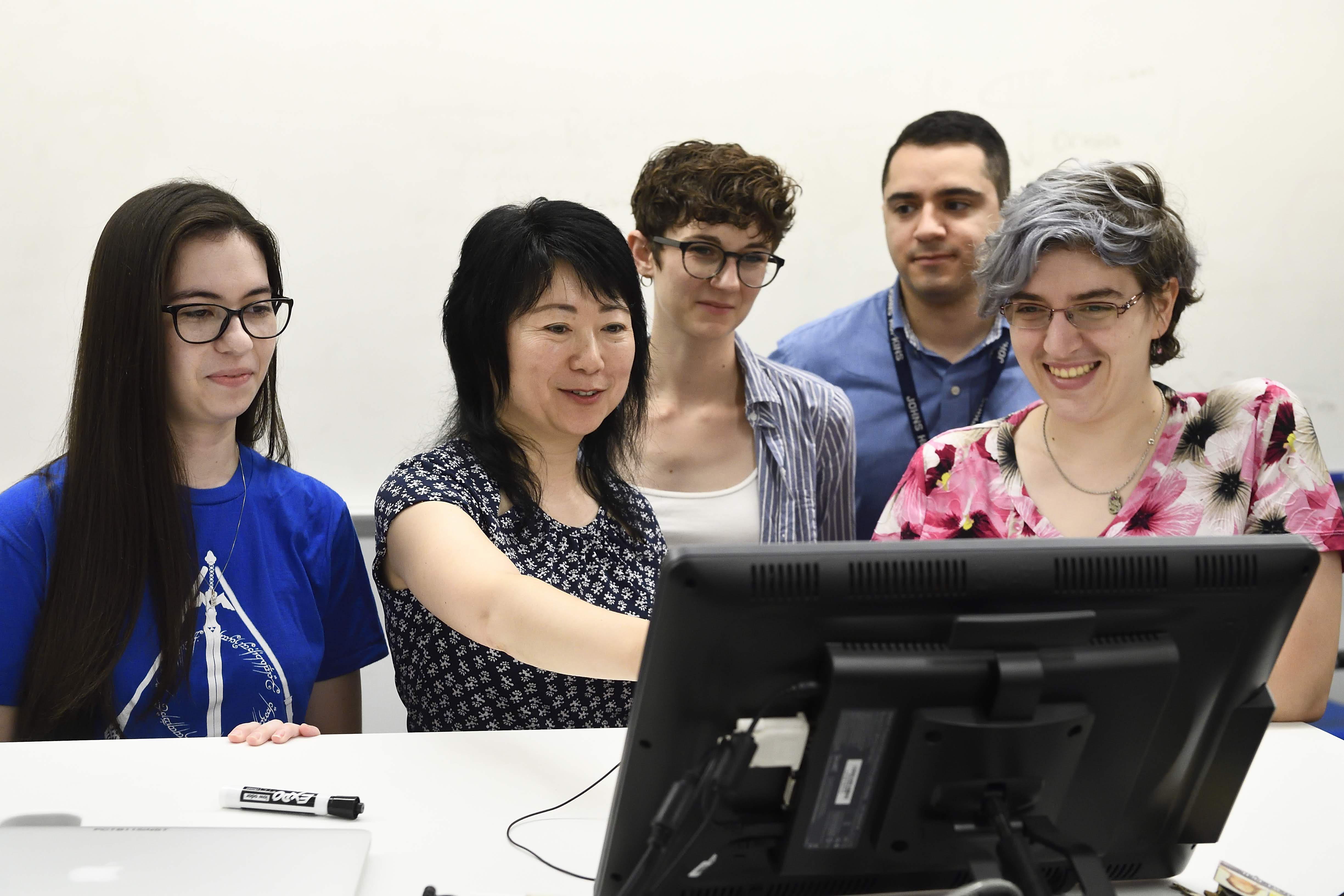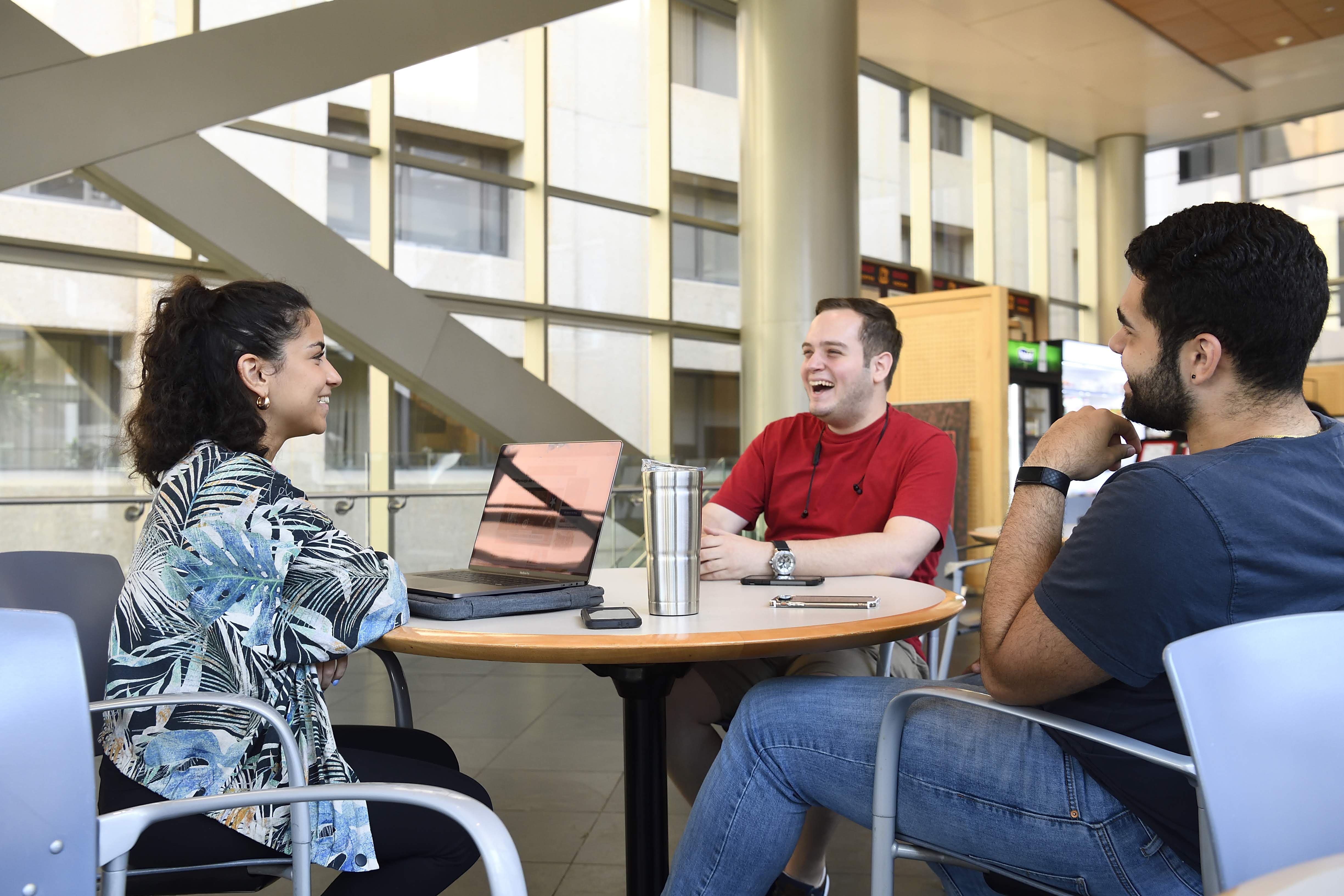Our Work
-
The Biological Chemistry Department faculty conduct cellular and molecular research to study basic biology and the origins and treatments of human disease. Among their targets are protein, metabolic and genetic controls of disease, and cell growth and differentiation in various biological systems, including skin, hair, fat and sensory nerves. Faculty member Dr. Peter Agre was co-recipient of the 2003 Nobel Prize in Chemistry for his lab's discovery of aquaporin water channels. Faculty are associated with the Biochemistry, Cellular and Molecular Biology Graduate Program, the Graduate Training Program in Cellular and Molecular Medicine and the Predoctoral Training Program in Human Genetics.
-
Since the 1940s, this department has applied advanced engineering technologies and concepts to biological problems and human diseases in seven research areas: engineering, cardiovascular systems, imaging, systems neuroscience, molecular and cell systems, neuroengineering and computational modeling. The formation of the Whitaker Biomedical Engineering Institute in 1999 and the faculty's close ties with the Center for Hearing and Balance, the Mind/Brain Institute, the Applied Physics Laboratory and the Center for Cardiovascular Bioinformatics and Modeling encourage a multidisciplinary, collaborative approach to research. The department has its own Master of Science, doctoral and postdoctoral training programs in biomedical engineering.
-
The researchers in our department address fundamental biological problems at a mechanistic level, using cutting-edge tools including cryo-electron microscopy, X-ray crystallography, nuclear magnetic resonance (NMR, single molecule studies and computer modeling. Current areas of research include DNA replication and repair, chromatin dynamics, transcriptional regulation, translation, cell division, cell-surface receptors and the innate immune response. Faculty members participate in the Biochemistry, Cellular and Molecular Biology Graduate Program and the Program in Molecular Biophysics, as well as several other School of Medicine graduate programs.
Explore the Department of Biophysics and Biophysical Chemistry
-
With its strong emphasis on animal models of human disease and long history of producing leaders in academic and industrial settings, this department is a national leader in research on animal diseases and animal models of human diseases. Research topics include animal models of AIDS, cancer, neurodegenerative disease, cardiovascular disease and inflammatory lung disease. Faculty, fellows and residents control disease outbreaks in the institutional animal colonies through the division of Molecular and Comparative Pathobiology and provide clinical care of research animals through the Research Animal Resources division. The department’s Retrovirus Laboratory oversees a training grant in pathobiology for pre- and post-doctoral trainees to study the molecular pathogenesis of lentiviral diseases.
Explore the Department of Molecular and Comparative Pathobiology
-
Building on the department's long, rich history, faculty members merge molecular biology and imaging techniques to focus on cellular form, function and transformation. Departmental scientists study topics including cell motility, division, membrane trafficking, metabolism, and development, with tools like scanning and transmission electron microscopy and scanning confocal, total internal reflection, and lattice light sheet fluorescence microscopy. Faculty participate in the Biochemistry, Cellular and Molecular Biology and the Johns Hopkins University Biology graduate programs.
-
Department members' research projects include gene expression and regulation, the cell cycle, signal transduction, developmental biology, microbial pathogenesis, immunology, DNA transposition, telomeres, RNA catalysis and the molecular biology of vision and olfaction. Many faculty members are Howard Hughes Medical Institute investigators. Former faculty members Hamilton Smith and the late Daniel Nathans received the 1978 Nobel Prize in Physiology or Medicine for their discovery and use of site-specific restriction enzymes. Faculty participate in eight School of Medicine graduate programs.
-
Neuroscience faculty focus on many areas of research including: cellular and molecular neuroscience; developmental neuroscience; neural circuits, ensembles and connectomes; systems, cognitive and computational neuroscience; and neurobiology of disease. Many faculty have joint appointments in other departments. Specific research topics include the mechanisms of learning and memory, neurotransmitters and growth factors, the visual system, synaptic plasticity, circuits underlying behavior, neurodegenerative and neuropsychiatric disorders, neural stem cells, vestibular system function, motor control, and neuronal death, survival and regeneration and pain. Faculty participate in the Neuroscience and Biochemistry, Cellular and Molecular Biology training programs.
-
John J. Abel, the "Father of Pharmacology," founded this department in 1893. Current faculty members are experts in biochemistry, immunology, virology, cancer, neuroscience, metabolism, genetics, and biophysics. Specific research topics include cancer therapeutics, viral infection mechanisms, antibacterial and antiviral drug development and delivery, protein structure and function, histone acetylation and gene regulation, drug metabolism and innate immunity. Faculty accept students from the Pharmacology Graduate Training Program, the Biochemistry, Cellular and Molecular Biology Graduate Program, the Chemical Biology Interface Program, the Biochemistry and Molecular Biology Training Program the Medical Scientist Training Program.
Explore the Department of Pharmacology and Molecular Sciences
-
Researchers in the Department of Physiology integrate many disciplines to understand the functions of individual systems within a whole organism and the mechanisms that produce and sustain life. Faculty tackle issues such as the molecular control of cell membrane activities, intercellular and intracellular communication, coordinated cell signaling for organ development and mammalian embryonic development. They use computational methods, genetics and post-genomic strategies to study these issues in a variety of organisms, from bacteria and yeast to zebrafish, mice and people. Faculty participate in a number of graduate programs, including the program in Cellular and Molecular Physiology.
Jun Liu on Looking to Nature for New Medications
Jun Liu, Ph.D., a professor of pharmacology and molecular sciences at the Johns Hopkins University School of Medicine, talks about the drug discovery lessons that can be learned from natural compounds, including the immunosuppressive drugs FK506 and rapamycin.
-
Meet our Scientists
View a sampling of stories about our researchers in the basic sciences. We're adding new stories every month, so please check back for updates.

-
Collaborate with the Institute
Find a research collaborator within the Institute. Search faculty by name, department and area of research.


